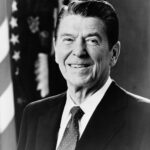Toward a Multiethnic Conservative Coalition
Just to put it out there immediately, I don’t label myself as a conservative, but, by the same token, don’t label myself as progressive or liberal either. I’ve worked in grassroots and non-profit work on a whole host of issues that would lead an outside observer to label me one way or the other depending on the particular problem at hand. But the truth of the matter is, no one size fits all. These ideological boxes are often more harmful than helpful. They enable pundits and others to use terms as shorthand references to broad-based trends in society without giving individual issues proper consideration. It’s particularly important to be open to challenging these norms outright given the nature of the current American political climate and intra-party conflicts. Take the question, for example, “Who is more conservative, Liz Cheney or Donald Trump?” How you answer may indicate more about you than about some objective identity labeled “conservatism.”
A multi-ethnic conservatism in the United States is a deeply American need transcendent of any particular individual partisan or ideological bent. This need speaks to the reality that, as Father Richard John Neuhaus has said, “culture is the root of politics.” In order for there to be a coherent “conservative coalition,” it must be able to navigate an American reality that is fundamentally pluralistic, globalized, multicultural, and multi-ethnic. The term “multi-ethnic” is an intentional choice as opposed to the term “multiracial”.
Many scholars of all ideological stripes have established that race is not biological, but rather a sociological construction that is as much political and ideological as it is cultural. In an article for the Atlantic, Ta-Nehesi Coates writes that “no coherent, fixed definition of race actually exists.” The online entry for “Race” in the Encyclopedia Britannica confirms that “at no point […] have scientists agreed on the number of races of humankind, the features to be used in the identification of races, or the meaning of race itself.” In other words, humanity made it up. The same Encyclopedia Britannica article also alludes to the difference between race and ethnicity. Ethnicity is removed from a biologically deterministic meaning and connected more to a “sense of identity and membership in a group that shares common language, cultural traits (values, beliefs, religion, food habits, customs, etc.), and a sense of a common history.”
For some conservatives, the definition of ethnicity would trigger the thought that a multiethnic conservatism would inherently be one that would lose its sense of patriotism. After all, doesn’t multi-ethnic imply that there are people, ethnos, with a different sense of a common history, maybe even religion or language? This challenge for some begins to run into the challenges with the idea of conservatism at-large. What would a multi-ethnic conservatism be conserving exactly, considering that people within this coalition would have different cultural experiences, traditional languages, or even sense of history?
A multiethnic conservative coalition in the United States would not be grasping to maintain a certain cultural experience in the United States. A multiethnic conservative coalition would instead have the goal of defending those realities accessible to all people through the natural law – the universal moral values found in documents like the Declaration of Independence, ideas at the heart of the American project like the application of law regardless of background, universal human institutions like the family, and economic principles like the ability for people to participate in economic exchanges to become an self-sustaining as possible. In his speech entitled “The American Dream,” Rev. Dr. Martin Luther King Jr. lauded the founding documents for their great “universalism”. Rather than speaking to a particular moment, the founding documents codify the dignity of the human person, carrying an explicit recognition of the rights of man and an implicit recognition of the corresponding responsibility of man.
This future coalition would have to operate with the wisdom to be able to discern that the most important thing for conservatives to conserve is not a particular cultural moment in American history, but the Constitution of the United States, which every elected official is already under oath to preserve. This coalition would require speaking directly to the needs and experiences of people from different cultural experiences – whether they be from South Korea or South Chicago. Many conservatives are fleeing from the language of diversity as divisive or un-American, and I argue that those conservatives miss the forest for the trees. The entire American project has been deeply pluralistic, federalist, and localist. Rather than build a conservatism that operates from a constructed national American identity that collapses geographic, ethnic, and class differences, the new conservatism should dream of an E Pluribus Unum conservatism that brings us ever closer to a perfect union.




